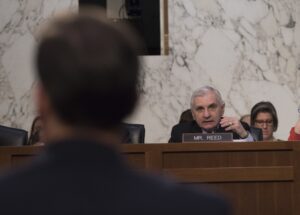
The Senate Armed Services Committee (SASC) has approved its $886 billion version of the fiscal year 2024 National Defense Authorization Act, while SASC lawmakers look for supplemental funding measures that could boost defense spending above the cap set by the debt ceiling agreement. After marking up the bill on Wednesday and Thursday, to include adopting 286 amendments, the committee voted nearly unanimously to advance the defense policy legislation to the Senate floor. “This week, the committee approved a bipartisan defense…

 By
By 










